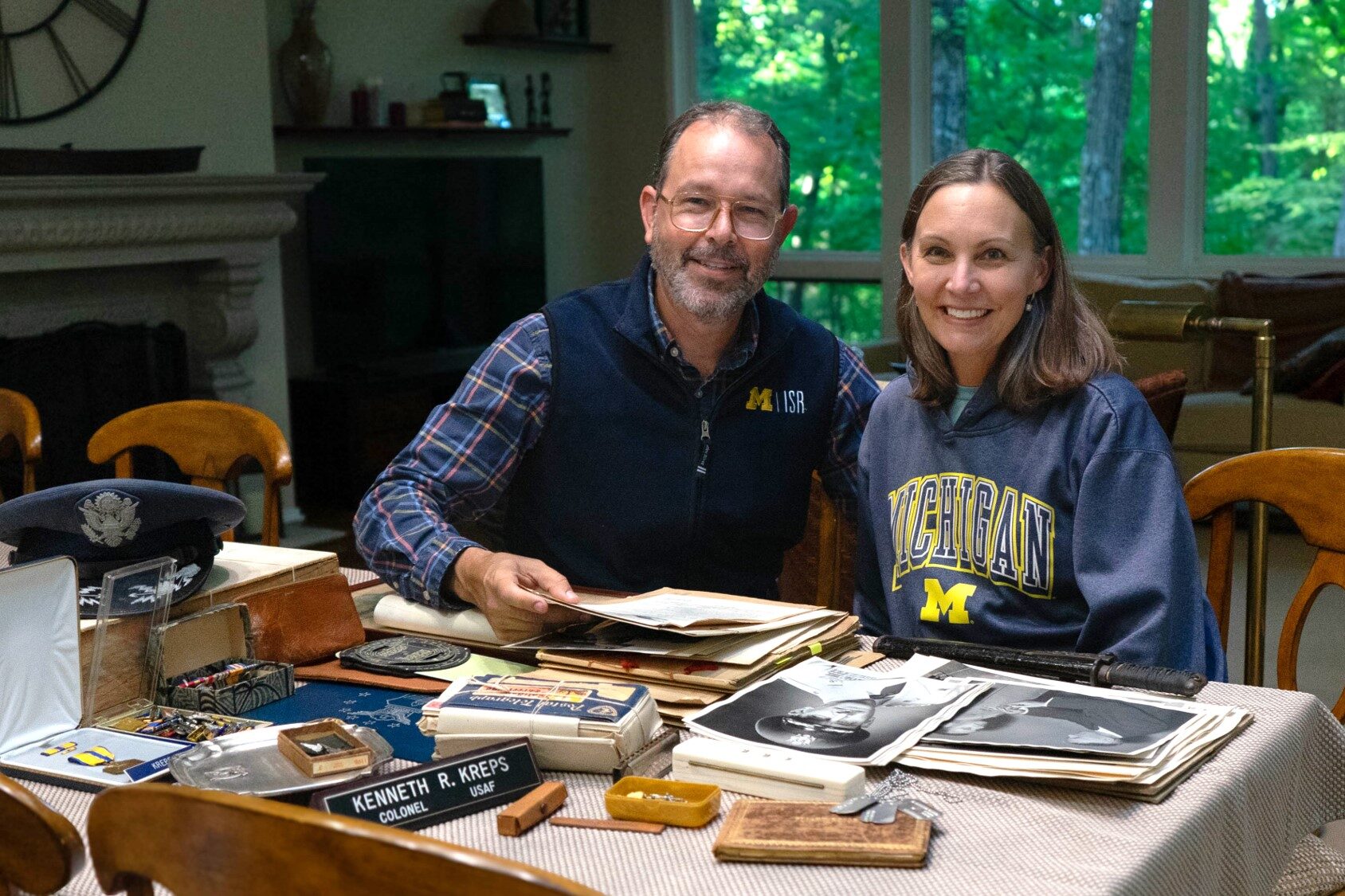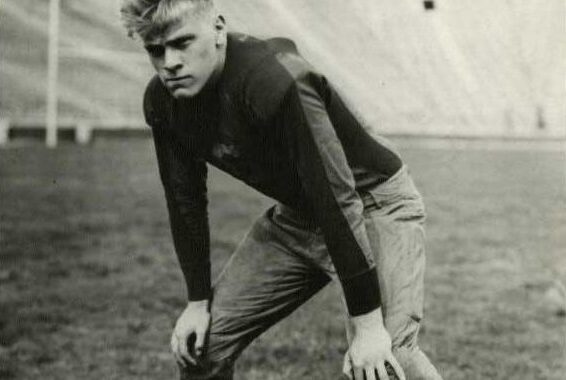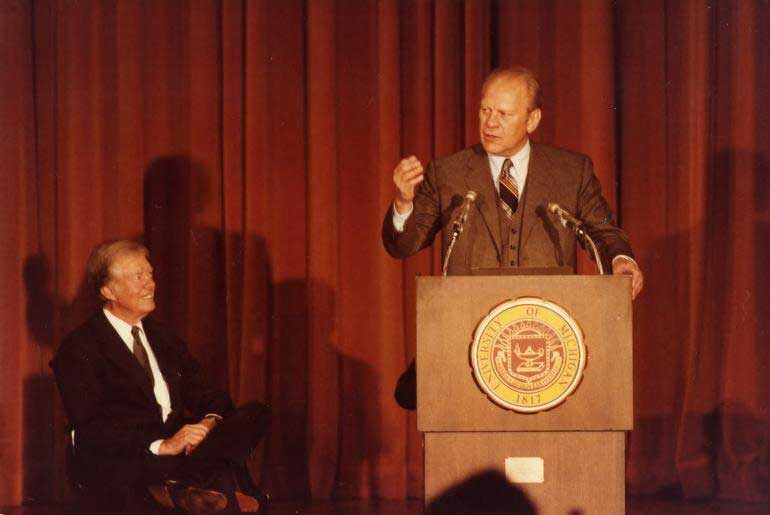A family’s quest for a hero’s ‘war chest’

From undisclosed honors to covert operations, the valiant military exploits of Colonel Kenneth Kreps were veiled in secrecy until a fateful discovery by his descendants. Witness the unveiling of a World War II hero’s saga as his family unpacks a long-lost treasure trove of historic memorabilia.
-
What Division Street divided
Video: The true story of Ann Arbor’s dry line, and the rowdy, brawling student behavior it totally failed to prevent.
-
The innovator
How U-M coach Fritz Crisler and World War Two created modern football.
Plus: Lloyd Carr retires as associate athletic director -
Lowest resident undergraduate tuition increase in a quarter century
U-M will implement the lowest resident undergraduate tuition increase since 1984 paired with a record amount of undergraduate financial aid and a new Economic Hardship Program designed to offer additional help to Michigan families.
Related:
-
The world game, home field
Video: On summer evenings on U-M’s Mitchell Field, players from around the world gather for games of pickup soccer.
-
The protest psychosis
In the 1960s, psychiatry saw an astonishing but largely hidden phenomenon. Schizophrenia, once seen as a disease of anxious, well-off white women, became a go-to diagnosis of angry, urban black men. How did madness, blackness and civil rights become linked, and what were the consequences for patients and society? U-M psychiatry professor Jonathan Metzl looks for answers.
-
Empathy: College students don't have as much as they used to
“We found the biggest drop in empathy after the year 2000,” said U-M’s Sara Konrath. “College kids today are about 40 percent lower in empathy than their counterparts of 20 or 30 years ago, as measured by standard tests of this personality trait.”
Columns
-
President's Message
Eureka! A look at the knowledge ecosystem
With $1.86 billion in research funding, U-M is leading the way in everything from energy solutions to artificial intelligence. -
Editor's Blog
A crisis by any other name…
You know what they say about opportunity. It knocks but once before the door slams shut. -
Health Yourself
So much for farm to table … We’ve got lab to table now
Who's ready to eat chicken that scientists 'hatched' in a lab and not from an egg? -
Climate Blue
How to keep your head above uncharted waters
Ricky Rood says goodbye to Floodtown as he guides us through the changing climate.
Commemorating an exceptional presidency
Fifty years ago, at a time of great division and turbulence in the U.S., Gerald R. Ford was sworn in as the 38th president of the United States. President Ford’s legacy is very much alive at the Ford School of Public Policy. This slideshow is inspired by the school’s recent tribute, “A life of public service,” in the Spring 2024 issue of State & Hill magazine. As noted by the editors, the values that distinguished Ford remain highly relevant to policy students today: his lifelong commitment to principled public service, his integrity, and his ability to connect across differences to forge consensus.


















